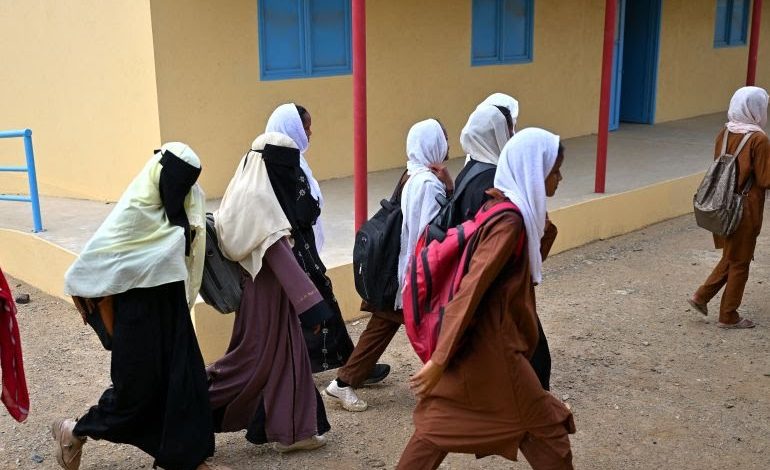Reports
Have Services Become a Tool of Political Conflict in Sudan?

Sudan Events – Agencies
After more than 20 months of the Sudanese crisis, militias accused the government of using services, education, currency replacement, and issuing identification documents as weapons against citizens living in areas under their control. A senior government official dismissed these accusations as political justifications for establishing a parallel government.
Since December 10, the Central Bank of Sudan began a two-week process to replace large denominations of the national currency (500 and 1,000 Sudanese pounds), rendering them invalid afterward. The bank designated centers in safe cities for the exchange, as banks in areas controlled by the Rapid Support Forces (RSF) were looted, destroyed, and left inaccessible due to insecurity and road closures since the onset of the war, making cash transportation impossible.
Meanwhile, Acting Minister of Education Ahmed Khalifa Omar announced during a press conference in Port Sudan on Saturday that preparations for university-qualifying high school exams for the postponed 2023 batch were complete. He stated that alternative registration numbers were provided for all states to enable students to take the exams.
Accusations
Minister Khalifa Omar revealed that 343,644 students, representing 83% of those who registered before the war (over 570,000), would sit for the exams. These exams will take place in 2,300 centers within Sudan and 59 centers across 15 countries, involving 46,553 students. Additionally, 120,721 displaced students from 11 states have been accommodated.
The Ministry of Education designated safe locations in war-affected states for students to take their exams. The government committed to transporting, housing, and feeding these students during the 12-day exam period.
Human rights organizations, including the Darfur Bar Association, Human Rights Monitor, and activists, accused the RSF of preventing students in areas under their control from traveling to safe states for exams. Despite online registration and family encouragement to travel, some students were reportedly charged fees to leave RSF-controlled areas, according to the Central Sudan Platform.
Claims
A senior government official argued that the RSF is using political pretexts to justify forming an authority in areas under its control with the support of political entities. He stated, “Throughout Sudan’s history, high school exams have been held in safe areas during times of war, with students transported from conflict zones to secure regions.”
Arrangements were made for students in Darfur and parts of Kordofan after registering their locations online and issuing registration numbers. However, RSF forces allegedly prevented them from leaving, indicating their intention to use these students as political leverage rather than genuine concern for their welfare, according to the unnamed official.
The same official accused the RSF of looting and destroying schools and banks in areas under its control. “This has made it impossible for banks to operate or for cash to be transported to these areas. Locations for currency exchange were designated to mitigate harm to citizens in war-affected states.”
He dismissed RSF claims of denying citizens access to passports, stating that passport offices do not discriminate between applicants and only refuse issuance under legal directives.
However, political analyst Faisal Abdel Karim warned that delaying exams for the 2023 batch since May threatens an entire generation and disrupts both general and higher education. He noted that the 2024 batch, originally scheduled for exams in June 2023, has also been postponed to March 2025.
Abdel Karim explained that the currency replacement is an economic and security measure following the RSF’s looting of bank funds, estimated at over $350 million. Additionally, widespread forgery necessitated the move. He argued that unsafe areas where currency cannot be exchanged do not imply targeting citizens in RSF-controlled regions.
According to Abdel Karim, the RSF leadership seeks to exploit service issues to accuse the government of violating citizens’ rights outside its control, divert attention from its documented crimes and abuses, and establish a political reality. The RSF’s civilian administrations in these areas have failed to deliver services or provide security for residents.
Source: Al Jazeera Net



